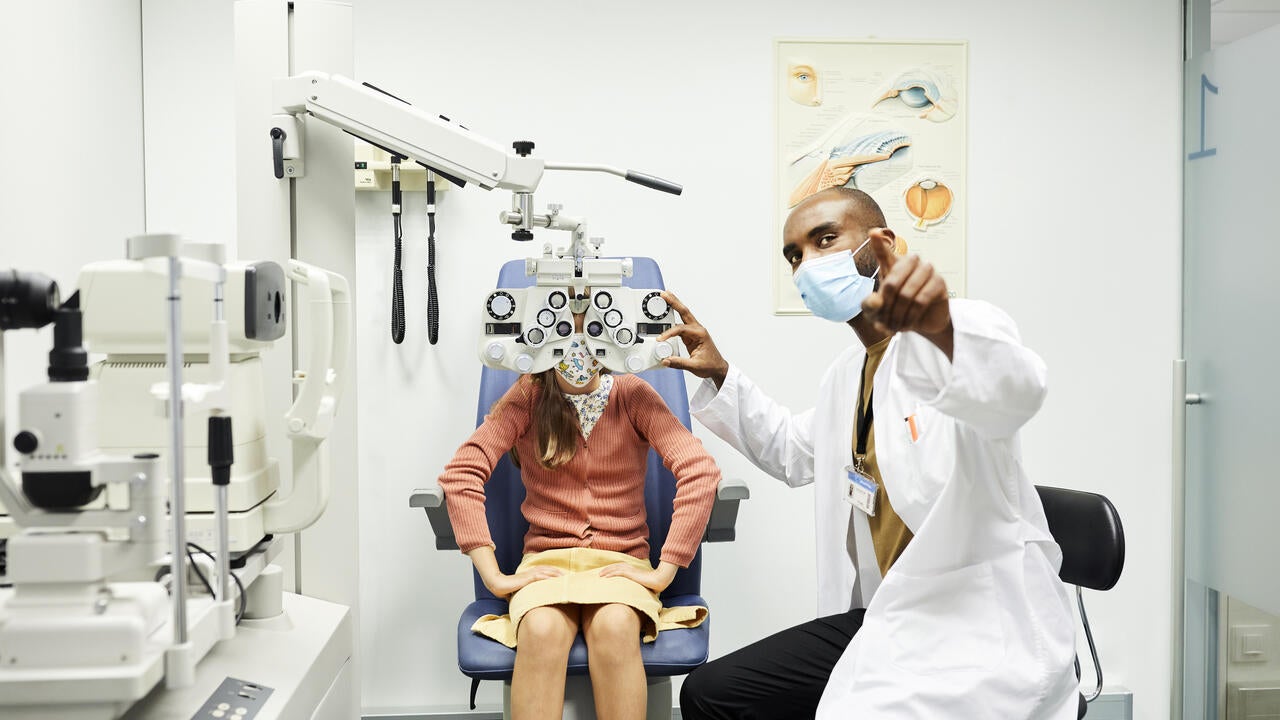
Q and A with the experts: How to protect your eyesight during the pandemic
Neglecting eye care can seriously put your overall health at risk, especially with work from home orders increasing screen time for most.

Neglecting eye care can seriously put your overall health at risk, especially with work from home orders increasing screen time for most.
By Media RelationsSince the pandemic began, access to eye care has continued to change. With high case counts in Ontario, the fear of contracting COVID-19 is still very real, and some patients are understandably hesitant to leave their homes for routine appointments. But, neglecting eye care can seriously put your overall health at risk, especially with work from home orders increasing screen time for most.
As the pandemic continues, can you afford to neglect your eye health any longer? Dr. Debbie Jones, an optometrist and professor, provides answers to this and other questions.
How will I know that I need to get an eye exam?
There are several reasons you might need to book an urgent appointment with your optometrist – no matter your age:
However, I can’t stress enough how important it is to include routine eye care as part of your list of health care check-ups. Many eye diseases manifest silently, so you could have an early eye disease and not know it. Early detection is the often the only way an optometrist can effectively treat eye disease to preserve as much of your eyesight as possible.
Is it safe to book an eye exam during the pandemic?
Yes, it is very safe. Optometrists have been deemed essential frontline workers, so eye clinics remain open for regular appointments – not just urgent care.
Working from home, I sit in front of a screen all day. What can I do to prevent digital eye strain?
If you find yourself in front of a screen all day, try employing the 20-20-20 rule: every 20 minutes, look up from your screen and focus your eyes 20 feet away for at least 20 seconds. Taking a break to focus on an item in the distance is critical in ensuring your eye muscles have the chance to relax after such prolonged exposure to your computer screen.
Don’t worry too much about measuring 20 feet exactly – the rule will still be effective as long as you’re focusing on an object far away. If you’re near a window, consider looking at a car parked down the street, or, even better – step away from what you’re doing and take a short break outside.
My children are spending hours in front of a screen every day as a result of online learning. How can I protect their eyesight?
Unfortunately, screen time may be directly contributing to further increases in childhood myopia (nearsightedness), as they spend extended periods of time focused on short distances.
Parents and caregivers can help prevent children from becoming nearsighted and slow down the rate at which the condition progresses by simply spending more time outside. Direct sunlight is a positive for children’s eye health, as well as children having the opportunity to long-range focus while playing outdoors. Restricting screen time is another option with optometrist-endorsed recommendations relating to screen times for children.
For children schooled at home where limits are not as practical, ensuring that the screen is not positioned too close to a child, encouraging regular breaks and using the 20-20-20 rule are all ways to help preserve their eyesight.

Read more
New evidence-based classification rules expand access and improve fairness for Para Cross Country and Para Alpine skiers

Hand holding small pieces of cut colourful plastic bottles, which Waterloo researchers are now able to convert into high-value products using sunlight. (RecycleMan/Getty Images)
Read more
Sunlight-powered process converts plastic waste into a valuable chemical without added emissions

Dr. Travis Craddock, professor and Canada Research Chair, says the team's findings change our basic knowledge of biology (University of Waterloo).
Read more
New study reveals quantum-level effects in biology with major implications for treatment of some brain diseases
The University of Waterloo acknowledges that much of our work takes place on the traditional territory of the Neutral, Anishinaabeg, and Haudenosaunee peoples. Our main campus is situated on the Haldimand Tract, the land granted to the Six Nations that includes six miles on each side of the Grand River. Our active work toward reconciliation takes place across our campuses through research, learning, teaching, and community building, and is co-ordinated within the Office of Indigenous Relations.